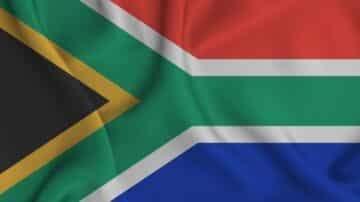Ramadan is the month on the Islamic lunar calendar during which Muslims abstain from food, drink and marital relations from the break of dawn to sunset. The fast is performed to learn discipline, self-restraint and generosity while obeying God’s commandments. Fasting (along with the Declaration of Faith, five daily Prayers, charity, and Pilgrimage to Mecca) is one of the “Five Pillars” of Islam.
Fasting is also for those who want to improve themselves- improve their bodies, their emotions, their mentality, their morality and their spirituality. Fasting is therefore an extraordinary educational experience that covers social, economic and spiritual dimensions – and Ramadan in South Africa truly encompasses these experiences.
In South Africa: Hot Fast
Despite the long and hot fast in South Africa: over 14 hours and in temperatures in excess of 30 degrees Celsius, Ramadan in South Africa still retains a “carnival” atmosphere. Months in advance, women can be found preparing tasty treats to feed their hungry families. With the majority of Muslims being of Indian origin, samosas, pies, curries, and haleem (a type of broth) are present on almost every dinner table.
It’s not all about food, though. For all the ideological differences that may exist among Muslims in South Africa, the fast of Ramadan truly unites the Ummah (Islamic community) here. Muslims tend to live in high concentrations in certain areas, and with whole areas fasting; neighbourliness and brotherhood run high as Muslims are united by their growling stomachs! This year, many students will be writing their final exams while fasting: a daunting thought when one considers the heat and length of the fast.
One of the main reasons that Muslims fast is so that they can empathize with the poor and needy, and during Ramadan South African Muslims give abundantly, both materially and spiritually.
South African Muslims: Vibrant and Dynamic
In South Africa today, there are over 500 mosques, 408 educational institutes, including colleges, Muslim private schools, religious instruction centres, and colleges of Islamic Sciences. Many universities offer Arabic and Islamic Studies as part of their academic curriculum. Muslims are involved in every profession and field of endeavour, and the significance and meaning of Ramadan is well-explained and publicised to all religious and cultural groups in the country.
Islamic media have also helped spread the message of Ramadan, and private Islamic radio stations broadcast Tarawih Prayers in nearly every province with significant Muslim populations, Radio Islam in Johannesburg; Radio 786 in Cape Town; Radio Al-Ansaar in Durban. Islamic newspapers have also played an important role in educating the Muslim community and others about Ramadan. Prominent newspapers include Al-Qalamn, Muslim Views, Al-Ummah and Al-Miftah.
Ramadan: Food for the Soul
Local Muslim organisations have taken the lead in addressing humanitarian needs locally and abroad. The Gift of the Givers Foundation, Africa Muslim Agency, Crescent of Hope and the Islamic Medical Association of South Africa have helped Muslims and non-Muslims alike in times of conflict, natural disasters, and political upheaval.
South African Muslims have always contributed to good causes, and it is during the fasting period that Muslims discharge their zakah (obligatory alms) obligations, give abundantly to charitable causes, and help the less fortunate. Many Islamic organisations begin their work in advance of Ramadan, in order to raise funds and help feed poor Muslims.
Sometimes, individuals take it upon themselves to prepare and distribute food for the less fortunate. All in all, it is a time when most Muslims reflect on their good fortune, and assist destitute Muslims both here and abroad.
Whilst imams may argue that the mosques are empty the rest of the year, during Ramadan the faithful jostle for space. Mosques are packed and Tarawih Prayers are performed in every single mosque in the country. At home, women perform Tarawih by themselves. Cinemas and theatres are deserted, as recitation of the Holy Qur’an becomes one of the central activities of the month. The graveyards are also well visited during Ramadan, and many prayers are said for the deceased.
Eid – a Time of Celebration
Private Islamic radio stations broadcast Tarawih Prayers in nearly every province
The festival of Eid Al-Fitr signifies the conclusion of the fast. In South Africa, Muslims celebrate the Eid by visiting friends and families. New clothes and delicious food characterise the day. Some Muslims, however, spend the day in orphanages, old-age homes and hospitals visiting those who do not have, or have lost touch with their loved ones. The spirit of Ramadan is still alive during the `Eid celebrations.
As I write this, I reflect on my brothers and sisters in areas like Palestine, Kashmir, and Chechnya, where life is constantly about survival, and a hungry stomach is not exclusive to the fast of Ramadan. At this auspicious time, I pray that Allah Almighty assist all Muslims throughout the world to overcome whatever challenges they may face. For Muslims in my own country, I just wish that the atmosphere of Ramadan could prevail throughout the year.
Ramadan Mubarak to all Muslims everywhere.
By Suraya Dadoo

